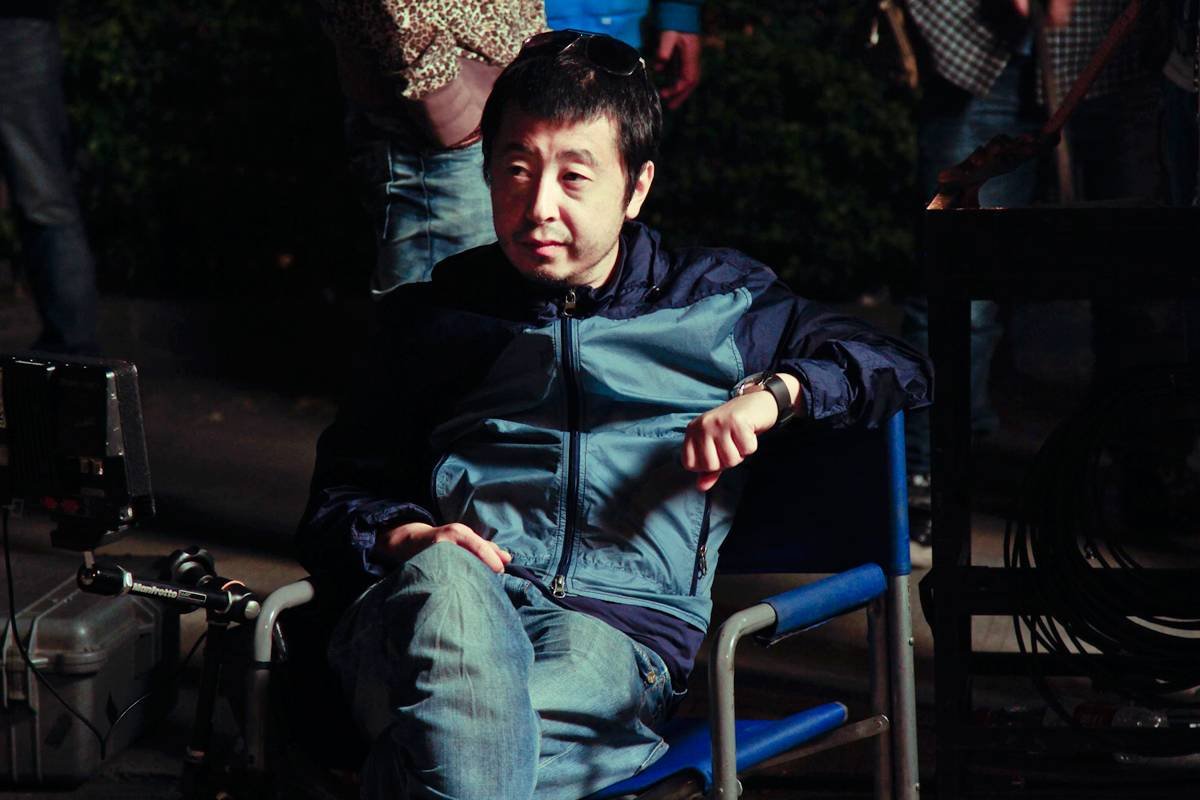In his classic book The Trickster and the Paranormal, George P. Hansen identifies liminality or “anti-structure” as a condition under which supernature tends to emerge. This can be personal or global. In either case, flux yields profound weirdness.
It’s a notion that surfaces in the seemingly unlikely context of the breathtaking Chinese gangster epic Ash Is Purest White, opening Friday (March 22). Written and directed by one of the major filmmakers of our time, Jia Zhangke’s latest is playful, funny, personal, arch, dazzling—and in a moment of either jarring whimsy or profound sadness (your choice), one of its two major characters, Qiao (Zhao Tao), watches a UFO streak across a desolate night sky.
“I think the gangster, or jianghu, film is very much about complex interpersonal relationships,” says Jia, speaking to the Georgia Straight through a translator during a press stop in New York. “Qiao is the moll of this particular brotherhood, there’s the connection between herself and her father, and she makes many different friends along the way as she is travelling. But suddenly I want to make it prominently known to the audience a sense of loneliness, that Qiao suddenly realizes she’s all by herself, and the connections she makes will be with the universe, with all the planets and stars that she gazes at. This is why I incorporate the UFO sequence. It’s a way to somehow mark that kind of transition.”
A recently developed interest in science fiction aside (“Just in the last two years,” he says), the filmmaker adds that he doesn’t need a theory of the paranormal to explain a poetic beat. But it’s worth noting that Jia used the same symbol and the same Yangtze River location 13 years ago in Still Life, in which a “three-thousand-year-old township suddenly is in ruins and soon will be underwater” courtesy of the construction of China’s Three Gorges Dam.
Society in change is a major theme in Jia’s work, and Ash is no different, spanning 16 years in the lives of Qiao and her lover, mobster Bin (Liao Fan). Beginning in 2001—“a very crucial year for China”—the film observes Qiao after a stint in prison throws her internal world into chaos. The source of the film’s melancholy humour and sense of resignation is that Qiao is bound to Bin, even as the dynamics of their relationship go topsy-turvy, across vast periods and distances. At its most blunt, the collision of Jia with genre arrives in the film’s ironic use of the saccharine theme to John Woo’s iconic The Killer.
“I’m a big fan of both the director and also [singer] Sally Yeh,” he offers. “And I think it’s something that perfectly captures what I’m trying to portray in the film, which is that it’s very much in the genre of the gangster film, but at the same time it’s also lamenting the disappearance of that kind of human connection, that sense of loyalty that you have with another person. So to me it’s something that will conjure up my nostalgia and my memories of what it’s like in the past when we actually believed in those types of codes of conduct in the underworld. Now I no longer see that. You see the change of values in the contemporary Chinese society.”
Musically speaking, Ash also offers the Village People’s “YMCA” as callback to Jia’s Mountains May Depart (2015), which employed the Pet Shop Boys’ “Go West” to similarly galvanizing effect. If the sense here is of an auteur’s work in conversation with itself, Vancouverites have the opportunity to really partake when the Vancity Theatre begins its mammoth retrospective of Jia Zhangke’s work on Thursday (March 21) with 2000’s Platform.
Published March, 2019
